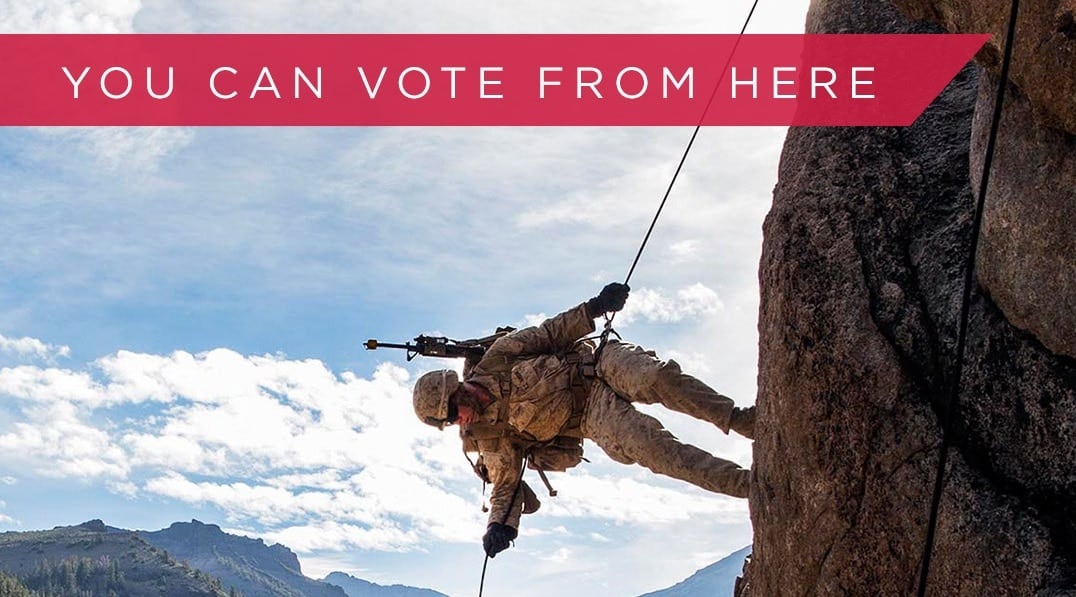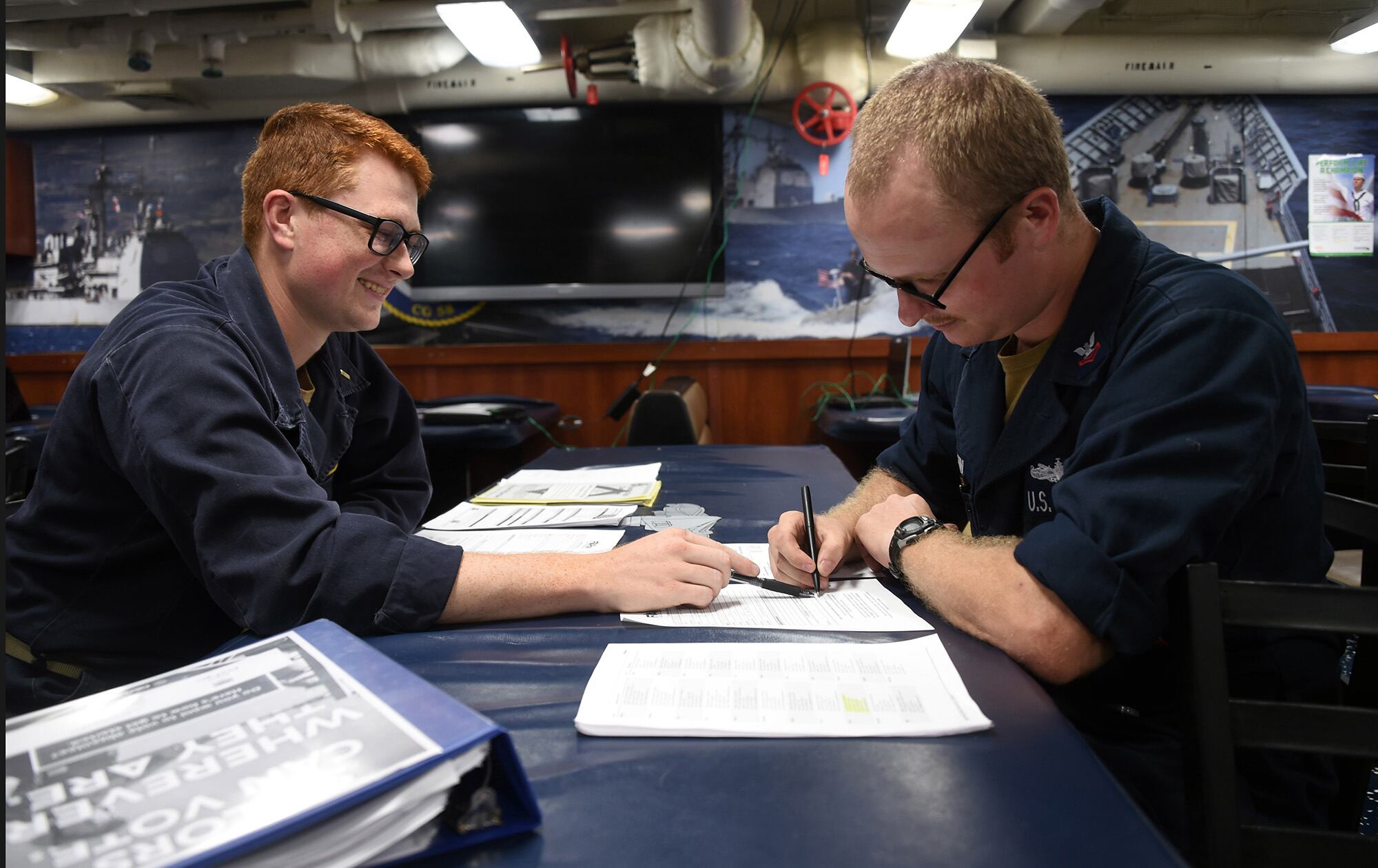As all eyes are on ballot counts in a handful of states, the military absentee ballot is getting more attention in the presidential election — particularly in Georgia, North Carolina and Pennsylvania.
With the race down to the wire in Georgia, those military absentee ballots could make a difference, according to Count Every Hero, an advocacy group with members including retired and former leaders like former Joint Chiefs chairman retired Marine Corps Gen. Joe Dunford Jr., former Air Force Secretary Debbie Lee James and retired Navy Adm. Jon Greenert, former chief of naval operations. And the ballots are still coming in — as long as the ballots were postmarked by Nov. 3, and received by Nov. 6, they are counted. Statewide numbers of absentee ballots coming in from military members and overseas U.S. citizens are not yet available, as each county in Georgia has that information.
In 2016, there were 12,432 military and overseas citizen absentee ballots counted in Georgia, including 5,203 military ballots.
While little is being said about ballots coming from U.S. citizens overseas, those ballots could make a difference, too — and their numbers are traditionally larger than the military absentee ballots.
RELATED

In North Carolina, for example, there were 17,201 military and overseas absentee ballots counted in the 2016 presidential election, including 6,317 military absentee ballots. Currently in North Carolina, where the margins are close, the number of outstanding military ballots alone is worth about 6 percent of the margin currently separating Trump and Biden, according to an analysis by Count Every Hero.
And the ballots are still coming in to North Carolina, too. In that state, local election officials accept absentee ballots from military and overseas voters through Nov. 12 — and no postmark is required on the ballot.

In Pennsylvania and Nevada, election officials count absentee ballots from military and overseas citizens that arrive by Nov. 10.
In Wisconsin, Michigan and Arizona, state law requires these absentee ballots be received by Election Day.
There has been much discussion about ballots coming in after Election Day, and whether they should be counted. But many states have long had laws and rules in place that allow for longer transit time for absentee ballots coming from military members and their families, and from U.S. citizens living overseas, all of whom receive protections under the Uniformed and Overseas Citizens Absentee Voting Act, known as UOCAVA.
The U.S. Constitution provides that state legislatures have the responsibility for making the rules regarding elections.
This is a developing story. Stay with Military Times for updates.
Karen has covered military families, quality of life and consumer issues for Military Times for more than 30 years, and is co-author of a chapter on media coverage of military families in the book "A Battle Plan for Supporting Military Families." She previously worked for newspapers in Guam, Norfolk, Jacksonville, Fla., and Athens, Ga.




